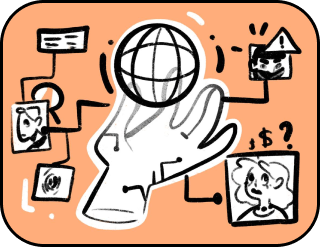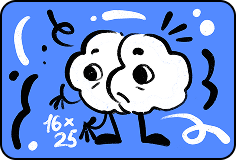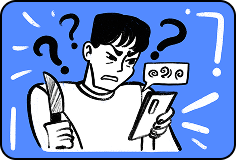Category: Cognitive technologies
The day money was abolished: what happens if currency disappears
“Heaven is a place where everything is allowed. So as in Hell”
A modern aphorism
Imagine a world where money is an artifact of the past, like cassette tapes or fax machines. Where you can walk into a store, grab a pineapple, or a neural implant to learn Chinese during sleep, or a ticket to Mars, and at the checkout instead of handing over a card, you hand over… nothing. Sounds like a utopia? Or the script of an economic apocalypse?
The paradox is that the idea of a “world without money” has been in the air since Plato’s “Republic,” but every time it crashes against a simple question: if the idea of abolishing money is so good, why haven’t we canceled this whole “paper tyranny” yet? Even now—in the era of cryptocurrencies, artificial intelligence, and total automation—we still nervously check our card balance before payday. Perhaps the problem is not money, but us? Take the USSR with its attempt to build a society “from each according to his ability, to each according to his needs.” The result? A barter chaos where for a pair of ‘boiled’ jeans you could buy a crystal vase but no certainty in the future.
So why do we cling to these pieces of paper and digital zeros: out of fear, greed, or some ancient instinct of “I have, but you don’t”? Here are some uncomfortable hypotheses that will make even the most progressive minds itch.
Hypothesis 1: Robo-feudalism, or who will profit from your freebies
Among dreamers and futurists, the image of a technological utopia has been well established: legions of robots tirelessly work instead of us, providing everyone with everything instantly. A beautiful fairy tale! But it will fall apart at the first practical question: who will own these mechanical breadwinners?
Spoiler: not you or me. Robots are not magical beings but massive capital investments. Most likely, super-smart machines will be concentrated in the hands of a narrow stratum of mega-corporations and investors, forming a brave new feudalism. Moreover, we will face the elegant trap of calculated economics: “free” robot labor is an extravagantly expensive good. Forget freebies: eternal maintenance, upgrades to the latest versions, and round-the-clock protection against cyberattacks will require astronomical sums. Who will pay them? People. In the form of a lifelong subscription fee for their own existence.
Robots will not abolish money. They will simply turn it into a hidden, mandatory subscription to life, disguising ancient inequality behind a shiny interface.
Of course, more positive scenarios are possible too. For example, a cooperative ownership model for AI and robots might arise, where profits from their labor are shared among community members. Or a universal basic income system will occur where the state heavily taxes robot owners. But what humanity will ultimately decide to do—that question remains open.
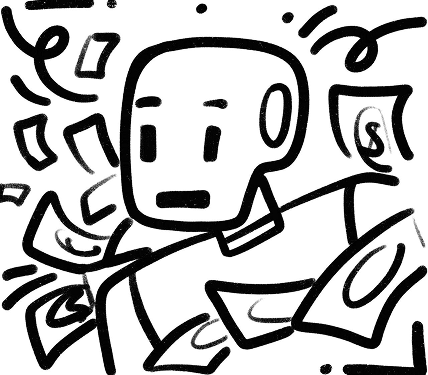
Hypothesis 2: Pineapple communism and the crisis of no equivalent
Suppose we get past the problem of ownership. A short-lived celebration begins: everything is free! Hooray! But what about tomorrow? If there aren’t enough pineapples for everyone, who decides who gets a juicy fruit and who gets canned pineapple juice? Without a price signal that delicately responds to supply and demand, the distribution of goods turns into a nightmare of arbitrariness. Someone will have to become an almighty (and possibly corrupt) “Minister of Pineapples.”

An economy without money is either barter or dictatorship. Try trading an old couch for a haircut—it will be clumsy. Money is a genius social contract, a universal equivalent that lubricates the gears of exchange. Breaking such a system abruptly means collapsing civilization. Breaking it gradually means years of trying to agree on what will replace money. Kilowatt-hours? Reputation points? Time? Experience shows that we always come up with something that looks very much like money. Any “points,” “credits,” or “tokens” instantly begin to perform monetary functions: they are accumulated, exchanged, and speculated on.
Hypothesis 3: The monkey brain that loves counting bananas
Our brain is hardwired for evaluation and comparison. People aren’t against money; they are against others having more money. In the world without money, if your neighbor receives an extra hour of oxygen or the right to watch a new series first from the “Minister of Pineapples,” in addition to the juicy fruit, your inner primate might get enraged. This is the social paradox: we tolerate massive inequality but go crazy over small injustices. As brilliantly proven by Kahneman and Tversky’s experiments, the human psyche is programmed for relative, not absolute evaluation. Injustice in $100 hurts us more than Elon Musk’s abstract wealth.
Even if we abolish money, we will immediately invent a new way to become richer: status, access to exclusive goods, power, likes. Competition is ancient software embedded in the human brain, and currency is just a convenient weapon in this eternal war for respect.
Why haven’t we abolished money yet? Because deep down, we don’t want to. They are the rules of an old but familiar game. Technology doesn’t solve the problem of power; the economy cannot exist without a universal equivalent, and humans need competition.
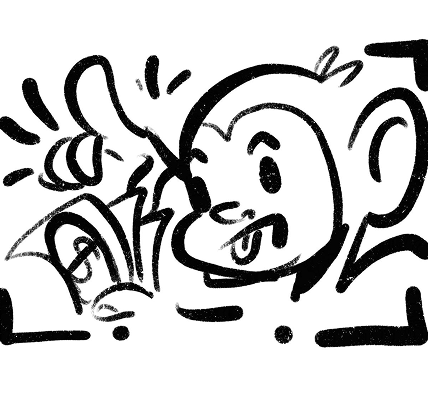
So why abolish money at all?
When we fantasize about a world where the rent bill doesn’t come and food materializes out of nowhere in the fridge, we don’t dream of a world without money—we dream of a world without need. We want a world where basic needs—food, shelter, security—are met by default.
But here’s the catch: so far, money is the best way humanity has found to distribute goods. Barter, coupons, quotas, social ratings—all these systems have proved more corrupt, unfair, or simply inefficient. Money, despite its flaws, remains the most universal language through which billions of people negotiate their needs.

Perhaps the true utopia of the future is neither total equality that forbids standing out nor wild capitalism where the strongest prevail. A good utopia is one where there is room for both. Where everyone has a guaranteed basic level of dignity, but there is still space for ambition, competition, and growth. Where, dreaming of the top, you need not fear ending up at the bottom.
Therefore, the bright future most likely requires not the abolition of money, but its radical rethinking. Maybe a universal basic income system will appear, supplemented by a reputation points mechanism that measures not only consumption but also contribution to society. Ideally, such changes will lead to currency we simply stop noticing, like oxygen—as long as it exists.
It’s interesting to wonder if the day will come when money takes its true place? Stops being an end in itself and a binding chain, but becomes just a tool—convenient, invisible, and truly working for the common good. In a world without need, money will have a chance to become help, a means for creation. And in that world, we won’t pay for life—we will invest in it.
While living organisms undergo translocation, deletion, and duplication, we offer scientific knowledge without mutations – only useful discoveries and theories.
Thank you!


